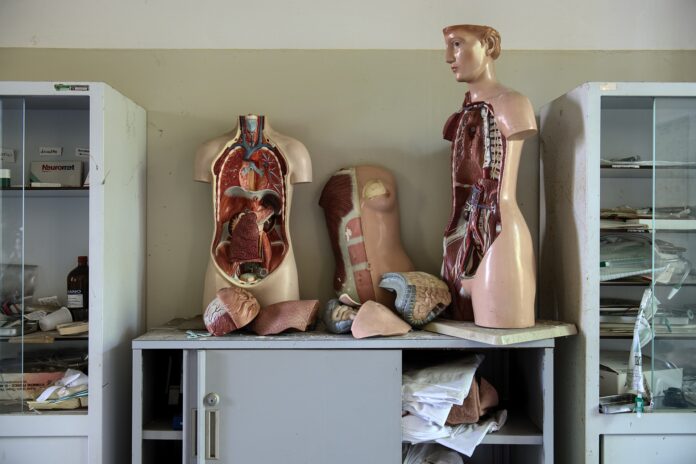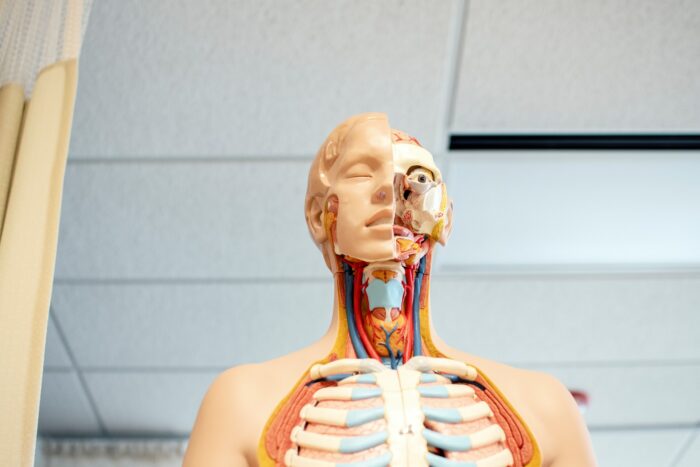
HGH, or human growth hormone, is a hormone that is produced naturally in the body; it fuels our growth and development from childhood well into adulthood. Produced by the pituitary gland located deep in the brain, we begin to see its natural decline as soon as our mid-thirties, leaving us susceptible to aging and degeneration.
This growth hormone helps to build, maintain, and repair tissue in the brain and other organs. In addition, it helps in recovery after an injury or illness and assists in building muscle, speeding up the metabolism, and burning fat.
The human growth hormone is also said to significantly impact the appearance and texture of the skin; some call it a miracle hormone that helps to stave off the aging process. The ability of this power hormone to facilitate bone, organ, and muscle development makes it one of the most critical elements in the creation of good health.
Growth hormone as we age
Normal aging processes are accompanied by a number of catabolic effects, including changes in lean mass, fat accumulation, and bone density. Along with these physiologic changes come additional physical changes like muscle atrophy, age-related obesity, an increased risk for bone fractures, and interrupted sleep patterns.
With natural declines taking place after the body is considered “at maturity”, levels of this critical hormone need to be monitored to ensure that they are within a desired target range for good health. In cases where it is found to be lower than the standard, considerations for supplementation should be looked at.
Consequences of low hormone levels
Low levels of human growth hormone become evident with the onset of the following symptoms:
- Weight gain
- Inability to lose weight
- Fatigue
- Dry skin
- Aches and pains
- Anxiety and depression
- Thyroid dysfunction
Upon discovering these symptoms, it may be necessary to assess levels of human growth hormone to determine if supplementation is needed.
How does one safely supplement?

The safest way to supplement is through a qualified medical professional. According to hghtherapydoc.com, supplementation and bringing HGH levels back up to expected levels has several health benefits, including:
1. Increased muscle strength and growth
Supplementation of growth hormone is shown to significantly increase muscle growth and development. Heightened collagen synthesis helps to facilitate the growth of connective tissue and tendons, making muscle tissue stronger.
2. Improved bone healing and density

Human growth hormone also helps to promote the development of healthy bone tissue, increasing both strength and density. Supplementing helps to regenerate new bone cells that contribute to healthy bone development.
3. Added benefits of weight loss
As we age, we tend to pack on some additional pounds due to slowing metabolism, toxic buildup, and less physical activity. Supplementation has added benefits of weight loss, as metabolism is stimulated through the release of growth hormone in the body.
4. Improved mood

Recent studies done indicate that HGH has the ability to stimulate mood and improve cognitive ability. Study participants taking hormone therapies for a month or longer cite significant gains in mood and memory. One reason for this improved brain function could be due to the fact that HGH supplementation tends to improve sleep patterns, which in turn makes the brain function more efficiently.
5. Reduces symptoms of aging
Many people undergoing growth hormone therapies note that they feel stronger, happier, and more vital than they have in years. Added benefits of tighter skin, thicker hair, and other indicators of youth and regeneration are present with the use of HGH therapy.
Are there side effects?

Even with prescription administration, there may still be side effects when using growth hormone therapy. Some of these side effects include:
- Nerve and joint pain
- Carpal tunnel syndrome
- High cholesterol
- Edema, or swelling in the extremities
- Increased risk for diabetes
- Neuropathy
- Increased risk for cancer
- Growth of facial features, hands, and feet
- Liver damage
- Fatigue
- Low blood sugar
These side effects are rare, and with a properly administered protocol of quality HGH supplements, patients report consistent gains in health and strength.
HGH as a Treatment for Postmenopausal Women With Osteoporosis
Now that we have a basic understanding of osteoporosis, let’s turn our attention to how HGH treatments can help keep the disease from spiraling out of control and giving way to fractures. However, before doing so, it is worth noting that, along with osteoporosis, low growth hormone levels among women, particularly those who are postmenopausal, can also trigger the following:
- Increased triglyceride levels
- Fatigue
- A decrease in strength and muscle mass
- Low libido
- Anxiety
- Depression
Over-the-Counter Options – Be careful
If you’re like most people out there, you’re keenly aware of the concept of oral products that are accessible over-the-counter. Some people incorrectly think that these kinds of products have the ability to raise growth hormone levels.
They believe that these products are similar to growth hormone injections. That honestly isn’t the truth in the slightest. If you attempt to test out these kinds of products, you may end up wasting your precious money. Although they may seem a lot more economical at first, they’re generally not thought to be anywhere close to comparable to injections.
You may hear a lot of marketing talk about body fat loss, hair growth replenishment, muscle development, and enhanced blood sugar amounts. You should think of length about these products, though. Be safe and take care.
How do I get HGH supplementation?
If you suspect that you may have lower than normal HGH levels, obtaining a blood test will be necessary in order for you to administer human growth hormone properly. Be wary of over-the-counter products that promise results, as regulations for the production of these supplements is not as closely monitored as hormones used in prescription protocols. The safest, most consistent way to administer hormones is under the qualified care of a medical professional.








